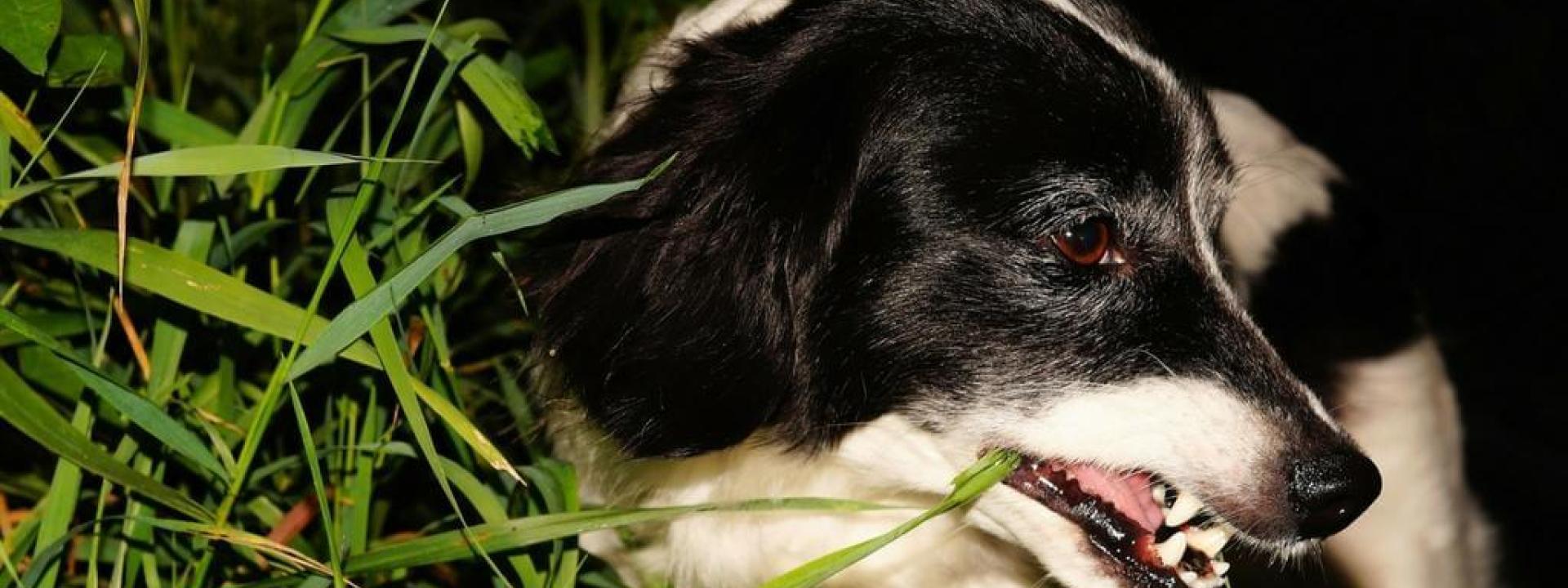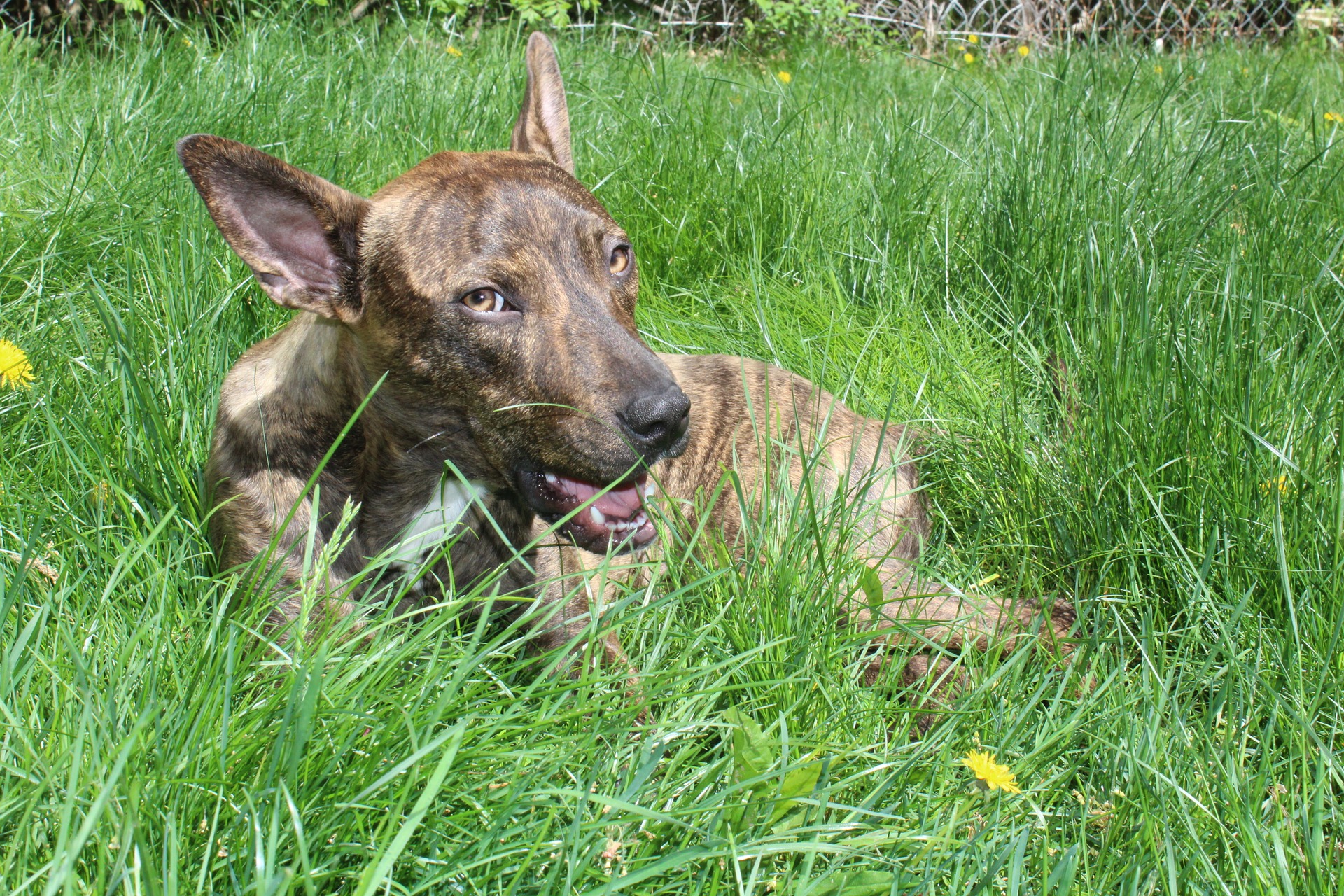Have you ever wondered why your dog eats grass like it’s a delicacy? It’s a little perplexing really: your dog goes outside and gulps the curd down, maybe only to throw it up later.
You may have heard that dogs eat grass to stimulate vomiting when they have an upset tummy. That’s probably true with some dogs though it's not the majority. Others do it because they’re bored...or even… because they like the taste.
It turns out there is a technical term for eating grass and other things that aren’t food. It’s called “Pica.”
“Sometimes pica indicates that your dog has some type of nutritional deficiency, though it is often simply a sign of boredom, especially when practiced by puppies and younger dogs. Dogs eating grass is actually quite common (it has been observed in wild dogs, too, and may be completely natural) and this form of pica does not usually cause too many problems. In fact, most veterinarians consider it a normal dog behavior. One small-scale study of 49 dog owners whose dogs had regular access to grass and other plants found that 79% of the dogs had eaten plants at some time. Another survey about plant-eating dogs found that grass was the most commonly eaten plant." (Source)
Of course, that probably comes as no surprise since grass is easy to find. But what you might not realize is that some dogs may eat grass to make up for the nutritional deficiencies in their diet.
Some Dogs Eat Grass for the Nutrients
Consider this explanation: "The grasses your dog is seeking out probably [contain] some nutritional value that your dog is seeking. We know that grass contains an abundant source of fiber or roughage, for instance, and we know that since grass is a living green food it contains phytonutrients and is high in potassium and also chlorophyll. Grasses are also a pretty good source of digestive enzymes.
So your dog could be seeking out selective grasses to make up for one of these nutritional components that they're currently not getting in their diet.
Some dogs may also eat grass because they are under-fed, don't have access to adequate food or are just plain bored. But, in the vast majority of cases, even if your dog is well fed and well cared for, he will still selectively pick out certain grasses just for their nutritional health benefits."
Can Grass Hurt My Dog?
The good news is, dogs have a digestive system that's built for grass.
"Dogs are truly omnivores; they can, and do, eat both meat and plant material. Wild or feral dogs, and dogs who hunt, often ingest the intestines of their prey along with the stomach contents — including plant material. Occasionally grass, and particularly grass awns, can become lodged in the back of your dog’s throat or between his teeth. If your dog wretches after eating grass or paws at his mouth, check for lodged grass as a potential cause." (Source)
Of course, if the grass in question is chemically treated, then you don't want your pup eating it, so that can be a bit of a challenge depending on where you live. If you know that your dog has eaten pesticides or chemical fertilizer, you should contact us immediately as this may be a medical emergency.
Alternatives to Grass
Some dogs enjoy lettuce, celery, and baby carrots. You can experiment to see which ones your dog will like, but be sure to talk with us first before making any diet changes or offering "people food" to your pets. These may be healthy alternatives to commercial treats, too.
Now that you know that grass eating is a normal dog activity, if you're still worried about your dog eating grass, you can discuss options with your veterinarian.


